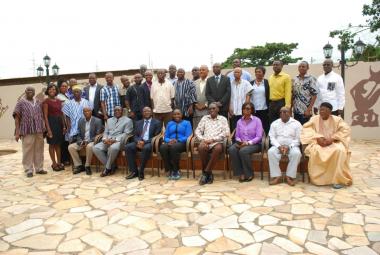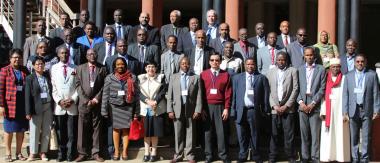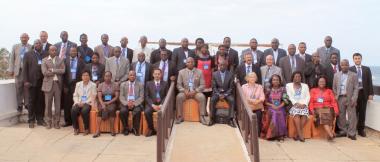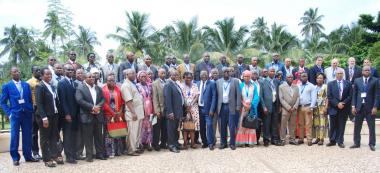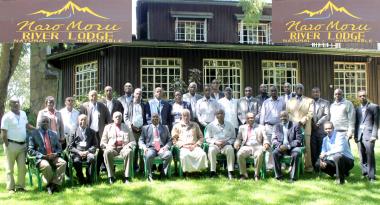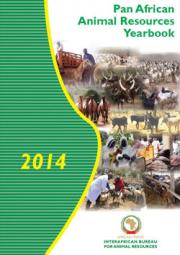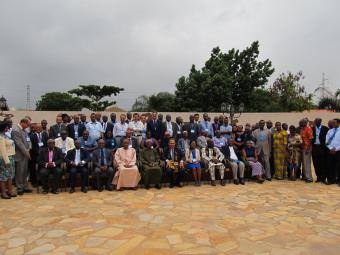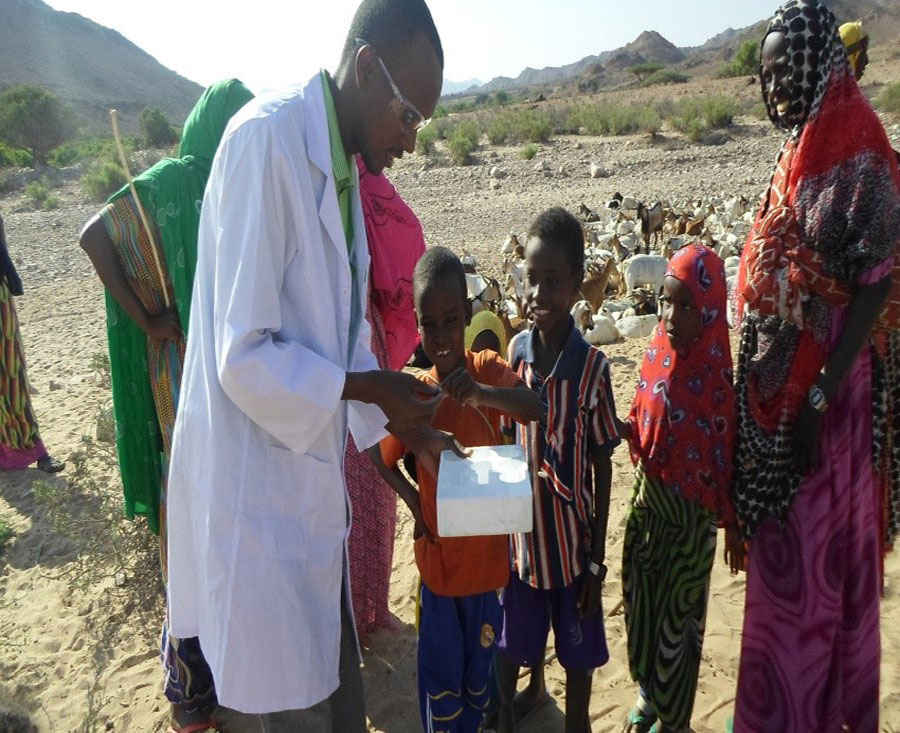
A validation workshop for an Animal Disease Surveillance Database for the Intergovernmental Authority on Development (IGAD) Member States (MS) was recently organised by the African Union Inter-African Bureau for Animal Resources (AU-IBAR) in collaboration with the IGAD/ICPALD, under the European Union funded surveillance for trade sensitive diseases (STSD) project.
The overall objective of the workshop was to validate the draft surveillance database for collection, storage and analysis of data from the harmonized cross sectional surveys (CSS) for CBPP, FMD, PPR and RVF in the IGAD MS and the region. The specific objectives were (i) to familiarize cross-sectional survey coordinators from AU-IBAR and the IGAD Member States with objectives, format, contents and use of the database for capturing and analysis of cross-sectional survey data; (ii) to facilitate the review and provision of feedback on different aspects of the draft database by Epidemiologists from the IGAD Member States to enable its finalization for adoption and effective use as a tool; and (iiI) to agree on the way forward on the CSS data storage and analysis at national (MS) and regional level (IGAD&AU-IBAR).
The meeting was attended by the STSD Project National Focal Points (NFPs) and surveillance coordinators in the national veterinary diagnostic laboratories of the IGAD MS that included Eritrea, Ethiopia, Kenya, Somalia, South Sudan, Sudan and Uganda. Participants from the Somali regions of Somaliland and Puntland as well as the relevant staff members of AU-IBAR and IGAD/ICPALD also attended the workshop together with the representatives of invited partners working in Somalia, namely COOPI and Terra Nuova.
The meeting was officially opened by Director of Animal Resources of Uganda, Dr. Nicholas Kauta on 30th March 2016. Opening remarks were also made by the representative of IGAD/ICPALD Dr. Agol Kwai and Dr. Henry Wamwayi on behalf of the Director of AU-IBAR, Prof. Ahmed El-Sawalhy.
Effective disease surveillance is vital in generating data required to guide the formulation of appropriate disease control policies and programmes as well facilitating livestock trade in the region. During the launch of the STSD project in February 2014, the IGAD Member States identified four priority diseases namely, contagious bovine pleuropneumonia (CBPP), foot and mouth disease (FMD), peste des petits ruminants (PPR) and Rift Valley fever (RVF) that constrain trade in livestock and livestock products in the region. To improve understanding of the level of occurrence and risk factors of these four diseases, the STSD project is supporting the IGAD MS to undertake cross-sectional surveys (CSS) to generate data on the distribution of the diseases and associated risk factors in the different Member States in order to enable development of risk maps for the diseases that will facilitate the formulation and implementation of effective control strategies. These will include risk-based surveillance strategies and the coordination and harmonization of control interventions at a regional level. Towards this, AU-IBAR with the technical assistance of experts from the Royal Veterinary College, London University as well as from the IGAD Member States, developed the design of the cross-sectional surveys for CBPP, FMD, PPR and RVF. The surveys are currently underway in Djibouti, Eritrea, Ethiopia and Sudan and efforts are underway to undertake them in Kenya, Somalia, South Sudan and Uganda.
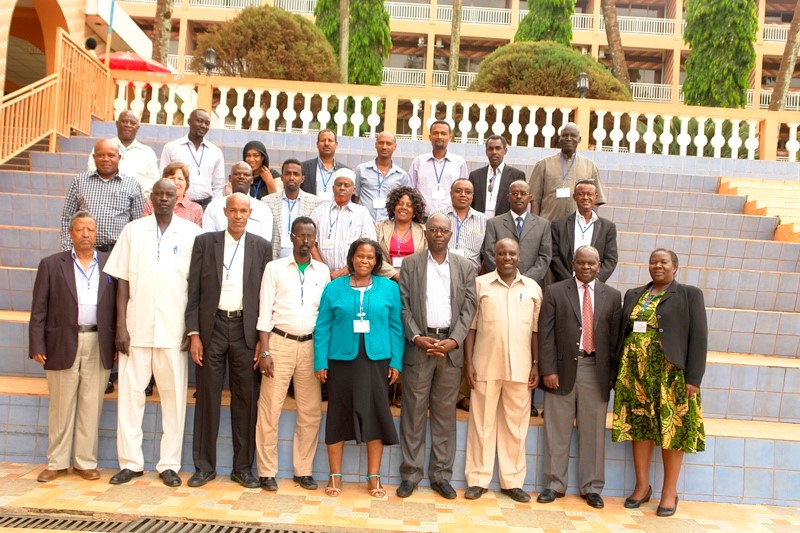
For effective regional coordination and harmonization of the national survey activities, there is a need to adopt a standardized approach for the storage and analysis of the data generated from these cross-sectional surveys.
During the two-day workshop for validation of the animal disease database, participants practiced and thoroughly discussed the database and proposed ammendments to improve its use. Following the extensive discussions and provision of inputs, the meeting validated draft animal disease surveillance database for the CSS data storage and analysis.
The workshop recommended that AU-IBAR in partnership with IGAD/ICPALD ensure that the participants' comments and inputs are incorporated in the final version of the animal disease surveillance database. The workshop also recommended that a regional training be organized for countries' data entry and analysis officers to ensure a standardized approach for the storage and analysis of the data generated from the cross-sectional surveys in the region.
The participants recognized and commended both AU-IBAR and IGAD/ICPALD for the workshop, and encouraged better coordination of disease surveillance and control initiatives in the region. AU-IBAR and IGAD/ICPALD lauded the commitment of MS towards the effective completion of the CSS activity in order to generate reliable information for evidence-based decisions to inform animal health policies and strategies at national and regional levels.


